Sometimes the way out of darkness is hitting play – to reach deeper feelings in a way only music can. The challenge can be just getting the track queued. All due respect to algorithms, half the joy of doing that is finding someone you trust.
And that’s what makes this time of year one I look forward to, even in midwinter, because it’s the time when I get to invite our friend David Abravanel round to assemble our year-end music list. David has the unique talent of being able to piece together all the moments of the year in music right when I’m in such a blur at the end of the year I can barely remember the day of the week. It’s not overly stuck on one genre or another, or weighted toward the end of the year while skimping January and February. And just as importantly, David neither ignores the unknown stuff, nor gets so hung up on digging obscure tracks that we forget about some of the bigger names we love, too. I do tend to contribute some ideas to these, but I also have the luxury of finding albums I wanted to remember even without a prompt.
So here we go. Because this really is the pleasure in music – at least for me. Social media may want us to focus on ourselves and comparison; streaming services may want us to hit play mindlessly. But friends can keep us tuned into what we really love best. And for music producers and musicians especially, those are great moments, too – when we can relax and just listen.
David runs down the list first, then follows up with more analysis of some underappreciated releases. It’s reason to be excited for 2022 – and let’s be honest, that’s a very welcome thing. –PK
51 albums, alphabetical order

The extra album is for good luck and/or because why not? Remove your least favorite below if you’d prefer.
ABADIR – Pause/Stutter/Uh/Repeat (Genot Centre)
Alan Vega – Mutator (Sacred Bones)
Alva Noto – HYbr:ID (Noton)
Andrew Pekler & Giuseppe Ielasi – Palimpsests (Shelter Press)
Black Sea Crime Complex – Argonautica (Primal Architecture)
Chrissy – Physical Release (Hoover)
Coppé – 蜜 (MITSU // 25 RPM) (Mango & Sweetrice)
Dax Pierson – Nerve Bumps (A Queer Divine Dissatisfaction) (Dark Entries)
Dean Blunt – BLACK METAL 2 (Rough Trade)
Derek Carr – Arrival (Firescope
Dirty Bird – Neurogenesis (Dirty Bird)
DJ Manny – Signals In My Head (Planet Mu)
Dummy – Mandatory Enjoyment (Trouble in Mind)
Emeka Ogboh – Beyond the Yellow Haze (A-Ton)
Gacha Bakradze – Obscure Languages (Lapsus)
Galcid – Hope & Fear (Detroit Underground)
Humanoid – 7 Songs (Delsin)
Illuvia – Iridescence of Clouds (A Strangely Isolated Place)
Inkipak – Inkipak (Mighty Force)
Inigo Kennedy – Eyes Closed to the Sun (Asymmetric)
Jake Muir – Mana (Ilian Tape)
James Welburn – Sleeper in the Void (Miasmah)
Jana Rush – Painful Enlightenment (Planet Mu)
Jimmy Edgar – CHEETAH BEND (Innovative Leisure)
John Tejada – The Year of Living Dead (Kompakt)
Llyr – Biome (Mesh)
Loraine James – Reflection (Hyperdub)
Lotic – Water (Houndstooth)
Low – HEY WHAT (Sub Pop)
Matthew Dear – Preacher’s Sigh & Potion: Lost Album (Ghostly Int.)
Meemo Comma – Neon Genesis: Soul Into Matter² (Planet-Mu)
Mira Calix – absent origin (Warp)
Monobox – Regenerate (M-Plant)
Mouse on Mars – AAI (Thrill Jockey)
Mr G – The Forced Force is Not the True Force (CHILDHOOD)
Nathan Salsburg – Psalms (No Quarter)
Om Unit – Acid Dub Studies (self-released)
RP Boo – Established! (Planet Mu)
Shawn Rudiman – Flow State (Pittsburgh Tracks)
Siavash Amini – A Trail of Laughters (Room 40)
Skee Mask – Pool (Ilian Tapes)
SKY H1 – Azure (AD 93)
Space Afrika – Honest Labour (Dais)
Steven Rutter – Riddle Me Sane (Firescope)
Stone Giants – West Coast Love Stories (Nomark)
The Black Dog – Music for Photographers (Dust Science)
The NRG – Live ’94 (The NRG)
The Pop Group & Dennis Bovell – Y in Dub (Mute)
TM404 – Syra (Kontra-Musik)
VC-118A – Spiritual Machines (Delsin)
Xeno & Oaklander – Vi/deo (Dais)µ-Ziq & Mrs Jynx – Secret Garden (Planet Mu)
Ten EPs, alphabetical order
Dream Sequence – Do You Still Think About It? (Leisure System)
Jlin – Embryo (Planet Mu)
Lyric – “Not Enough” / “Praise Up” (M-Plant)
Machinedrum – Psyconia (Ninja Tune)
minimalviolence – Phase Two (Tresor)
MVW – Classic$ (MVW Productions)
Patten – Burner (555-5555)
Pole – Tanzboden (Mute)
R.A.D.E. – Pacific (self-release)
sl0p0k – first/last (Valence)
Five compilations, alphabetical order
Terre’s Neu Wuss Fusion – Recalls (Comatonse)
Atom™’s This Is series
Robag Wruhme – Connecting The Dots (Kompakt)
Various Artists – Planet Love Vol. 1 – Early Transmissions 1991-95 (Safe Trip)MLO – Oumuamua (Music from Memory)
10 reissues, alphabetical order
Arovane – Atol Scrap (Keplar)
Coil – Love’s Secret Domain (Wax Trax!)
Juana Molina – Segundo (Crammed Discs)
Liquid Son – Garden of Eden (Cold Blow / Mental Groove)
Nu-Era – Beyond Gravity (Omniverse)
Radiohead – Kid A Mnesia (XL)
Seefeel – Rupt and Flex (Warp)
SND – 4,5,6 (SND)
Spiritualized – [first four albums] (Fat Possum)
Super Furry Animals – Rings Around the World (BMG)
In focus

Mr G – The Forced Force is Not the True Force (CHILDHOOD)
Colin McBean has never lied to me, and it’s always raw. Raw synth stabs, raw percussion workouts, raw sample juggling, raw emotion (2014’s Personal Momentz and especially its centerpiece “Dad?” still make me cry). In a year with many peaks and valleys collectively, culturally, and personally, such unfiltered music with its cracks intact was vital. Mr G returned with an LP of his signature hard-hitting house, this time with more emphasis on space and sparseness.
Bookended by parts one and two of “Still Life Talkin’”, with an insistent sample demanding, “we’ve gotta make it better!” which fits somewhere between optimism and desperation. “Future World” avoids the exact feeling of its sci-fi electro influences, instead presenting an eerie distance reminiscent of watching endless sci-fi streams on a late night zone bender in a hot apartment. Following minimally laid-out caverns “Lifes Cycle” and “Tropical Hifi”, “New Normal” provides an incredible release with literal panting on the one.
Sure, you’ll miss the dance floor a bit with these, but the album doubles as alienation therapy via headphone catharsis. Feel free to shout a bit while it’s on.
Madteo – Head Gone Wrong by Noise (Honest Jon’s)
It seems like damning praise, but Matteo Ruzzon is a musician’s musician in the sense that the skeletons of his productions are so often on display. Ruzzon’s deep voiceovers convey emotion while remaining largely unintelligible. The atmosphere is there as always, with more steady percussion to guide things (there’s nothing about simply staying outta trouble this time, though I firmly believe that Russon will wants us to take care of ourselves). Like a radio drama sliced up, slowed down, and layered with disco drums.
Siavash Amini – A Trail of Laughters (Room40)
William S. Burroughs once declared that all of his books were really one larger book (and if you need to start somewhere with him, Wild Boys is the dearest to me but Junky remains the easiest entry point). Siavash Amini’s albums seems to work similarly – there’s a narrative across his body of work that chronicles peaks and valleys, euphoria and terror, and some absolutely astonishing uses of space, pressure, and dissonance.
A Trail of Laughters isn’t happy or reassuring (the title, see…), but it is honest and vital. Inhuman lengths of tremolo strings beg for air on “Crocuta Crocuta”, only to encounter empty wind and Lustmord-esque sub frequencies on “Daniâl My son, Where did you vanish?” There’s a hopeful denouement as “Kaftâr-Khal” ascends towards the heavens, which is appropriate since Amini deserves the moment of bliss and respite after birthing a monolith such as this album.
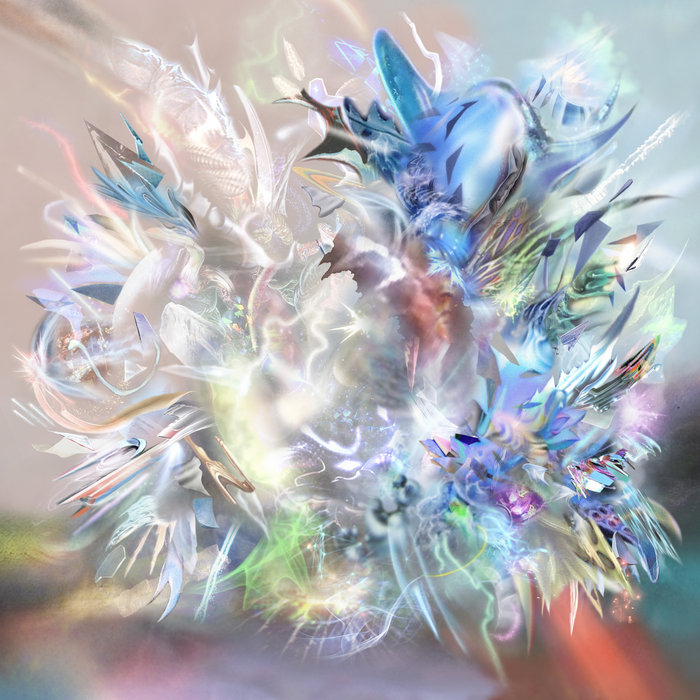
ABADIR – Pause/Stutter/Uh/Repeat (Genot Centre)
Experimental sequencing and structure have had a real moment in electronic music over 2021. Both Ableton Live and Bitwig Studio introduced new features for going off-grid in sequencing, and Arca released 5 albums that I have yet to conquer (I’m sure they’re great, on my to-dos).
In the meantime, Rami Abadir happened to release Pause/Stutter/Uh/Repeat, his best album to date, in 2021. Influenced by the rhythms of human language, this is the actual promise of “deconstruction”, a term so often and loftily bandied about yet so rarely done with such engagement. I’ve literally watched videos of how Rami arranges his music (he’s very generous in sharing on Instagram), yet I’m still mystified by how these pieces have so many lush blurred parts and yet sound so crystal clear. You can absolutely hear the angelic choirs and ever-present ethereal pads in dialogue with the snippets of…actual dialogue that pop up.
As an added bonus, the remixers here – including last year’s AOTY creator FRKTL – deliver excellent takes on the material. I swear I can hear the dust colliding with the walls after I listen to this one all the way through.

Meemo Comma – Neon Genesis: Soul Into Matter2 (Planet Mu)
Indulge me to bias some music that speaks to my own culture as Lara Rix-Martin merges the influence of Judaism’s metaphysical questions with the future as seen through anime and cyberpunk.
It’s also pretty thrilling that this is the third Meemo Comma album, and none of them sound anything alike (when I mentioned Sleepmoss, Rix-Martin’s last album, in my 2019 roundup, I had no idea what was in store next from an artist who had just delivered such a beautiful field recording-laden celebration of nature).
This time around, Rix-Martin delivered a thrilling and moving set that explores technology and spirituality in ways that put it in direct kinship with influences such as Ghost in the Shell and titular namesake Neon Genesis Evangelion. There’s loads more to say about this here – and Lara was kind enough to talk to me about the album earlier this year.
Nathan Salsburg – Psalms (No Quarter)
Yeah, there’s not much “digital” here other than that it was likely recorded on a Pro Tools rig, but your guy has a real soft spot for spiritual and sometimes cryptic folk music (Current 93 and the Antifascist Neofolk playlist are frequent listens). See, I’ve thought before about translating my own religious and spiritual experience into something folky, but unfortunately “singer-songwriter” just isn’t really in my bones.
Lucky for me, there’s Nathan Salsburg, and his gorgeous Psalms. Exploring the Jewish biblical psalms of his young summer camp experiences, Salsburg forges a new path to pique the interest of devotees of both egalitarian tuneful Rabbi Shlomo Carlebach and dark folk legend Bonnie “Prince” Billy.

Alan Vega – Mutator (Sacred Bones)
Alan Vega – After Dark (In the Red)
One of the interesting things about being Jewish is that many of our icons aren’t necessarily the most religious folks – but they embody the cultural experience. In music, there were few more relatable Jewish icons for me than Alan Vega. Both Vega and Martin Rev, his partner in pioneering electronic punk duo Suicide, came from classic New York Jewish upbringings. The two once described their 70s-era shows as being difficult for audiences who expected to come in from the cold and mean streets of the city, and instead found an even more intense confrontation awaiting them on stage.
It was Alan Vega, both in Suicide and in his solo recordings, who taught me so much about finding beautiful transcendent art in the darkest corners of human experience. You can survive a massacre and then go party over the weekend. It’s not like a movie where you either have the demons on you always or you don’t – the good times and the bad usually overlap.
Posthumously, Vega’s wife Liz Lamere has blessed us with some vital additions to his legacy. Finished instrumentally by Lamere, Mutator is the kind of insistent electronic punk fantasy compilation that shows Vega as a dreaming prophet on “Samurai” and an industrial neon poet of late nights minutes later on “Filthy”.
After Dark is a very different beast, featuring Vega backed in a “late night rock n roll session” by Ben Vaughn, Barb Dwyer, and Palmyra Delran. With heavy rhythms and frequent feedback demons cascading about, it’s a heavy and woozy ride through and through. Put on “Wings of Glory” right before a long sleep after a hard night.

Coppé – 蜜 (MITSU // 25 RPM) (Mango + Sweet Rice)
When I wrote about Coppé’s album 20 RPM in 2015, I praised her decades-long refusal to pin herself to any one genre or sound. Since that album, the Japanese musician and singer has released an album of electronic-tinged jazz standards (2017’s Milk), an album of floating grief-stricken takes on opera arias (2019’s Na Na Me Na Opera), and, in 2021, 蜜, consisting almost entirely of solo instrumental compositions for piano.
The playing on 蜜 is often lyrical, with sharp trills conveying the longing we’ve all felt during periods of extended pandemic isolation. The world is still a place of wonder, however, and Coppé – alongside frequent live collaborator Marc Urselli – treats the pieces with effects combinations that lean on reverb and pitch-shifting delays (seriously, if ever an album makes you long for an Eventide harmonizer…). I’m hard pressed to think of another album that can make me lay back contentedly and then get choked up the next moment.
Lovingly, Coppé ends things with a cover of Charlie Chaplin’s iconic “Smile,” done in a classic jazz style with Coppé’s smoky pipes (seriously, go back and listen to Milk again and ask why she isn’t playing more jazz festivals). A nice reminder to keep up our optimism.
Gacha Bakradze – Obscure Languages (Lapsus)
It’s appropriate that Lapsus also reissued a couple Ochre records this year, since Georgian Gacha Bakradze similarly defies easy categorization, fitting in that gooey world that we’re apparently allowed to call “IDM” again. It’s playful (“Impression”), dark and drippy (“Lead”), and a distorted liminal space (“Driver”).
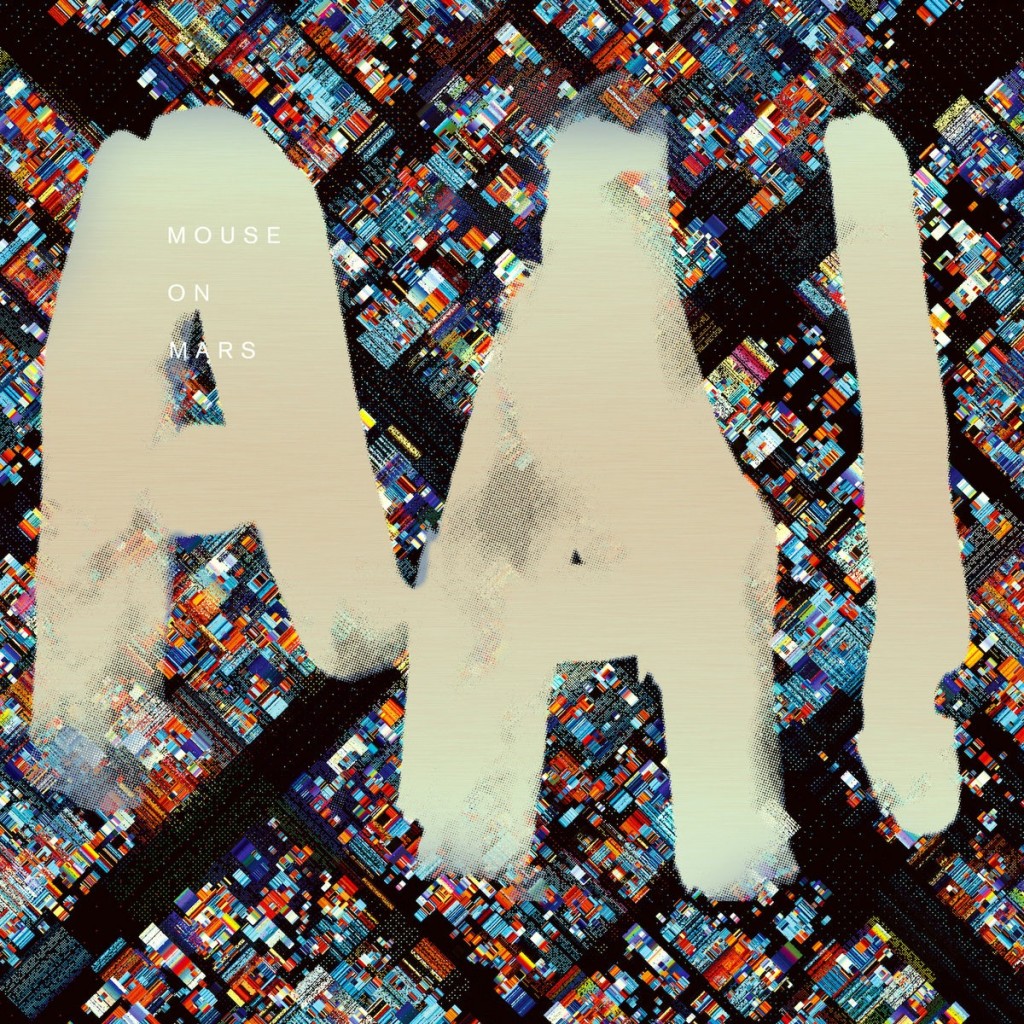
Mouse on Mars – AAI (Thrill Jockey)
Does an experiment need to be considered an objective success in order to be unleashed on the public? Does that affect how enjoyable it is? Look, I’ll be honest – AAI is an album that you will enjoy far more immensely by reading up on its creation. I understand that some people think that music should always either hit you immediately or not; given that film and literature work are ridden with references that require study, I don’t see why we can’t have music that works the same.
All of this is to say that, if you like Mouse on Mars in general – you’ll enjoy AAI. If you spend some more time trying to traverse the album and forge a relationship with it, there will be moments when you swear that you are having a conversation with a recorded piece of music, and others where the uncanny valley AI voices are trying to convince you to do…odd things. Really, it’s worth the effort to make friends with this machine.
TM404 – Syra (Kontra-Musik)
For a project that started with a relatively simple premise – Andreas Tilliander owns an obscene amount of beautiful gear, especially many TB-303s – TM404 has evolved into a kind of techno monolith for all things dark, dubby, and acid. Syra is easily the most refined and confident TM404 LP yet. For an instrument that is so common as to become cliché in electronic music, Tilliander continues to wring new bubbles and plinks from the 303 and its Roland cousins. We have faster dub on “Vactro”, clear Consumed-era Plastikman influence on the appropriately titled “1998”, an uplifting spiral on “Oxfor”. This is one for anyone who has ever asked why Tilliander needs to own five 303s. Who else could?
Steven Rutter – Riddle Me Sane (Firescope)
Derek Carr – Arrival (Firescope)
For all that we’ve seen new labels and artists taking influence from Artificial Intelligence-era sounds, Firescope, run by Steven Rutter of B12, really nailed it with two expansively uplifting releases this year. Rutter’s Riddle Me Sane sees a light at the end of the tunnel started with his previous LP Brain Fog (and “LifeLine” could easily have been a standout on Electro-Soma or Time Tourist), while Irish master of optimistic aliens Derek Carr imagines a far better, interstellar future on Arrival. Seriously – why do the aliens always have to want to kill us? They love their families too.
Shawn Rudiman – Flow State (Pittsburgh Tracks)
The sequel to Rudiman’s excellent techno LP, Conduit, Flow State makes for a calmer sibling, stretching out more into sequencer-laden passages and spacey Detroit-style dreamers. Reminiscent of The Orb when Thomas Fehlmann was more in the driver’s seat, with a very Detroit/Pittsburgh flavor. “I’d Like to Extend My Stay at the Cloud Lake Motel” just about says it as a track title and a description.
Black Sea Crime Complex – Argonautica (Primal Architecture)
Jason Priest – Jason Priest is Missing (Midnight Mannequin)
It’s been an incredible year for Antoni Maiovvi, and were it not for breakthrough COVID I would have already done a longer piece on this. Look forward to it better late than never.
Suffice it to say that the same musician released a cold post-punk/martial industrial gray dust cloud with Black Sea Crime Complex’s Argonautica, alongside his latest and greatest album as the fictional (now set in the 90s) synth pop renegade Jason Priest.
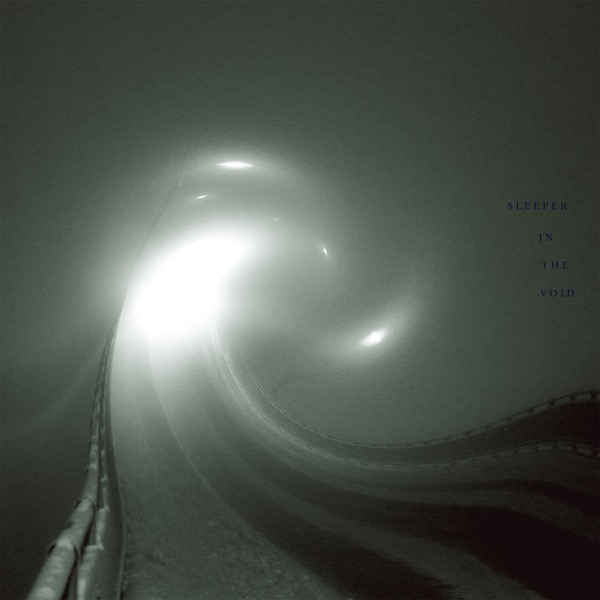
James Welburn – Sleeper in the Void (Miasmah)
There’s something magical when the drummer is at the controls – somehow they always know space so much more than they’re given credit for. Among many instrument, James Welburn is also a drummer, and with metal, experimental, and jazz pedigrees, he brought us his second solo album, that massive Sleeper in the Void.
This is enormous slow drone metal with atmosphere to move, an incredible feat that often defies the biggest names around. If you like Sunn0))), Om, or Lustmord (all of whom would be fantastic Welburn collaborators as well), this one should be high on your list.
Dean Blunt – Black Metal 2 (Rough Trade)
Remember I mentioned how Mr G’s “Dad?” brought me to tears in 2014? Dean Blunt’s “MOLLY & AQUAFINA”, off the first Black Metal album, was the other track to cause that reaction that year. Suffice it to say I was both excited and guarded for what Black Metal 2 might do to me.
Blunt kept things brief this time, and favored slice-of-life/stream-of-consciousness lyrics with the same kind of “dreampop guitars on a laptop” production that gave Black Metal its similar vibe. Things get downright folky with “WOOHSAH”, soft rock on “NIL BY MOUTH”, while closer “the rot” runs a beautiful Lauren Canyon psych-folk melody through claustrophobically pressured reverb. Stunning headphone listening.
VC-118A – Spiritual Machines (Delsin)
The little things are all over Spiritual Machines – small bursts of noise, tiny vocoded echoes, scratches, hiss. Not to say that the electro on display doesn’t also have its substantial kicks and beautiful synths, but it’s those little things I keep coming back too. Few albums in 2021 felt as fleshed out and as “the machine becomes human” as VC-118A’s latest.
Stone Giants – West Coast Love Stories (Nomark)
It’s funny now to think that there was a time when it felt like Amon Tobin’s output was getting sparse. Since re-emerging with his own label, Nomark, in 2019, Tobin has released seven LPs in two years: three under his birth name, one as bass dominator Two Fingers, one as garage rock-tinged Only Child Tyrant, one as psych rocker Figueroa, and this one as Stone Giants (to say nothing of a wealth of EPs and singles, including a resurrection of his mid-90s Cujo alias). Incredibly, none of this has felt unnecessary, tossed off, or disappointing.
From what I can tell of Tobin’s cast of personalities, Stone Giants is where we go for music that might have made it to an Amon Tobin release as an instrumental, but for Stone Giants there are lyrics. Not quite as song-like as Figueroa, and with more of the kind of expansive sound design that’s often on the Tobin songs. The resulting album is a masterpiece, as we get emotional melodies and progressions befitting the best moments of the two Amon Tobin albums from 2019. Also, all the processing in the world – welcome as it is – can’t hide the fact that Tobin actually has a pretty great voice.
Angel Bat Dawid – Hush Harbor Mixtape Vol. 1: Doxology (International Anthem)
The designation of a mixtape usually indicates that the pieces contained are rougher and/or less thematically linked than those that would go on an album proper. In the case of instrumentalist Angel Bat Dawid, Doxology means an opportunity to merge poetry, R&B, sound art, jazz, hip-hop, field recordings, and of course those beautiful clarinet flights into a statement bursting at the seams with ideas and emotions. Sometimes the lyrics are poems, sometimes they’re stream of consciousness, and sometimes everything drops out for some jingling percussion. “Trust your instincts and listen to the voice…all you have to ask for is wisdom. Wisdom is everything.”
Take a break from reading me and go listen to this.
Lisa Bella Donna – Mourning Light (Behind the Sky)
Mourning Light consists of music that synthesist Lisa Bella Donna composed for live painting sessions with Alicia Jean Vanderelli. While I haven’t seen the paintings, the music still speaks for itself. There’s a surprising amount of variation on display here – Parts I and II (condensed to one track) suggest the b-sides to Kraftwerk’s Autobahn with Orchestron/Mellotron-era choirs, Part III takes things to the Berlin school, and Part IV is a dark ambient canyon. It’s a good thing Bella Donna is also known for her live tech demos because I really do want to know how this one came together.
µ-Ziq & Mrs Jynx – Secret Garden (Planet Mu)
If you were looking for two musicians with the melodic and playful chops to express the melancholy, emotion, and ultimately resilience of the grieving process, you’d be hard-pressed to do better than Mike Paradinas and Hannah Davidson, aka µ-Ziq and Mrs Jynx. That’s just what the two pulled off for this collaboration. Get hit right in the feels with “Cocker Boo”, and then see the sunshine again with the title track.
SKY H1 – Azure (AD 93)
Speaking of grief – SKY H1’s breakthrough debut LP is an introspective set of gorgeous tracks reportedly inspired by grieving and absolutely inspired by IDM’s “ambient” wing and Virus patches (see the track names). I have yet to see a review of Azure that doesn’t say something to the effect of “yes, there’s too much ambient techno/IDM right now, but this is really worth it!” But if the shoe fits? Hear it.

Ensemble d’Oscillateurs – 2 Transcriptions (Oliveros • Pade) (LINE)
In the midst of the many deserving reissues in the realm of experimental music (just look at the volumes of Roland Kayn albums to resurface on Bandcamp this year), it’s interesting to step back and recall that many of the 20th-Century avant garde wrote their music as scores, rather than assembling definitive studio versions. As such, it’s nice to see modern musicians take their stabs at some of these classic pieces. Nicolas Bernier’s Ensemble d’Oscillateurs provide a lovely look at two pieces from Pauline Oliveros and Elsa Marie Pade, both performed using test oscillators and other crude physics equipment (see Berna 3 for a similar experience on your computer).
As a bonus, there’s a book – including scores – that dives into the whole process. And you owe it to yourself to learn about this one.
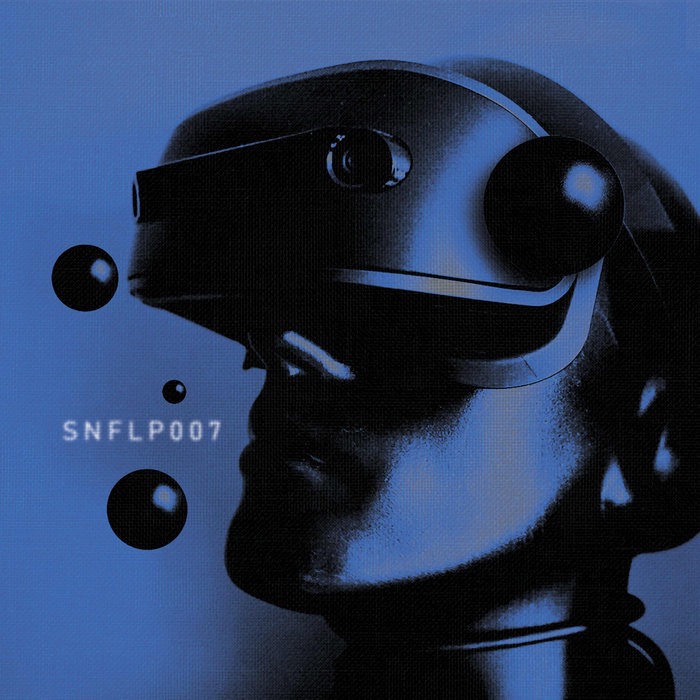
Byron the Aquarius – The New Beginning (Shall Not Fade)
In 2020, producer and jazz keyboardist Byron the Aquarius helped to inaugurate a new expansion of Jeff Mills’ Axis label with Ambrosia, an album made with a jazz ensemble. For The New Beginning in 2021, we’re getting a more electronic affair that pays homage to Detroit and its many heroes (including tracks dedicate to Mike Huckaby and J Dilla). Reflecting the weak boundaries that saw the birth of techno in the Motor City, influenced by jazz, electro, pop, funk, R&B, and post-punk, The New Beginning is a super lively affair, moving from lush spacey pads on “Smoke One for Huckaby” to breakbeat jazz on “Universal Insanity”.
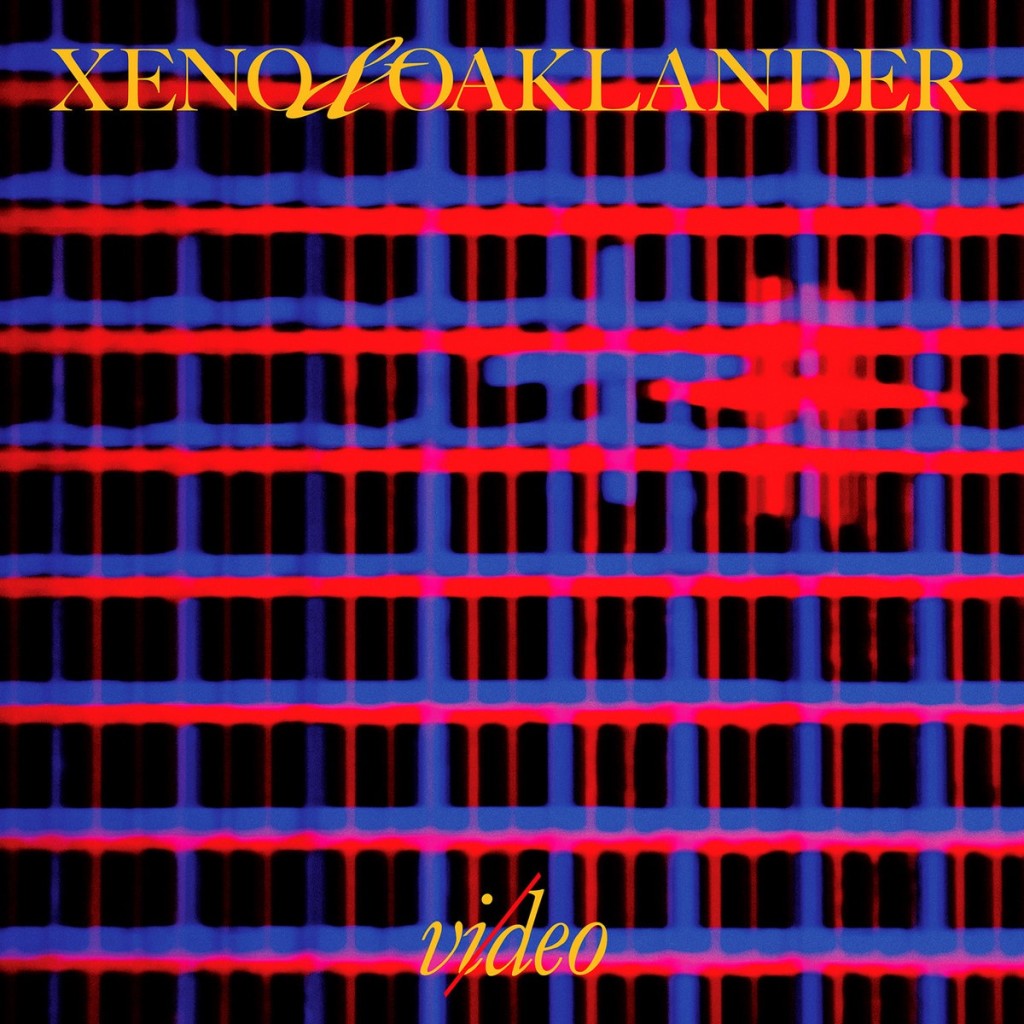
Xeno & Oaklander – Vi/Deo (Dais)
I have a very sensitive sense of smell – which is to say, my enjoyment of Xeno & Oaklander’s latest album may be slightly biased by my enjoyment of the custom perfume scent it comes with (Liz “Xeno” Wendelbo is apparently also a perfumier outside of music). At this point, Wendelbo and Sean McBride have honed their cold synth pop to a craft, which is absolutely a compliment here. Just listen to “Technicolor”, swoon, and smell that beautiful scented insert.
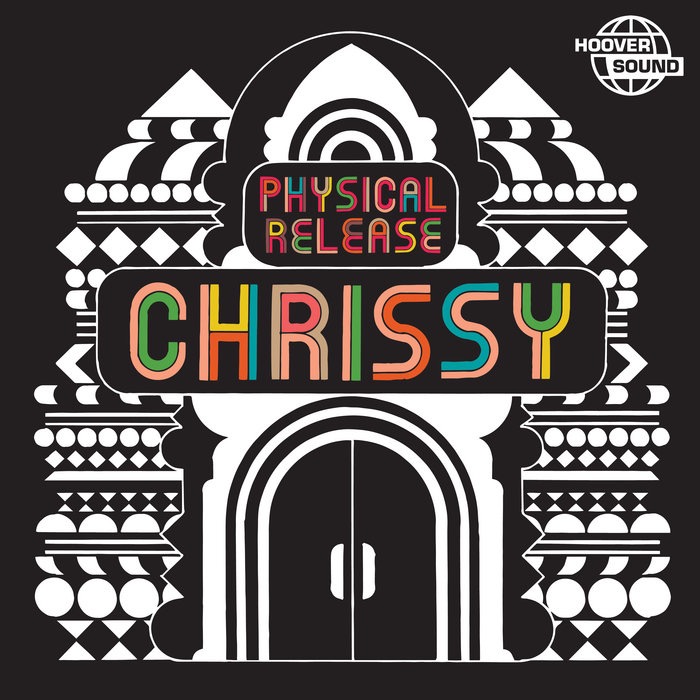
Chrissy – Physical Release (Hooversound)
Chrissy did the obscenely hard work this year of finding hope, and put it on wax for Physical Release, the first LP to come from Sherelle’s red-hot Hooversound label. This is a masterclass of the many styles Chrissy has embraced in his career – jungle through hardcore to house and disco. It’s a celebration of community and connection, of illegal warehouse parties, of the excitement trying to find the right field, of the beauty of sweaty hugs. There’s already been more than enough ink on how musicians who make club tracks might adapt to creation and distribution of their art after two years of silent/extremely limited clubbing environments. The answer is hope, breaks, pads, and the infectious smile that is Physical Release.
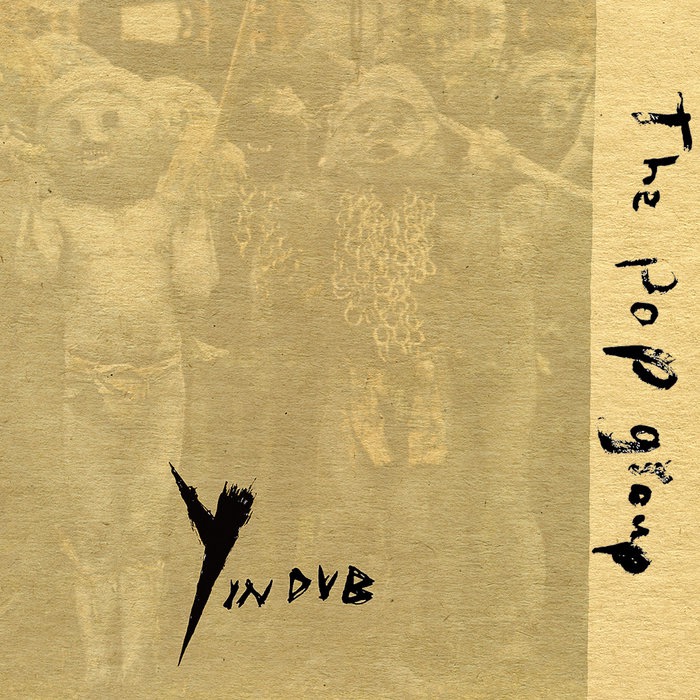
The Pop Group & Dennis Bovell – Y in Dub (Mute)
In a year that saw loads of excellent reissues (see below), The Pop Group and producer Dennis Bovell did things a bit differently. With the landmark Y album having already seen reissue in 2019, 2021 gave us Bovell’s re-examination of the 1979 post-punk classic he originally produced.
Most well-known in the 70s for his midas touch with Lover’s Rock, Bovell started a decades-long track record of traversing genres with Y. While the original is electric and jutting, Y in Dub gives us a different, more cavernous look at what’s going on. Bass lines were always important to The Pop Group – who themselves were heavily informed by dub – but Y in Dub brings the low end further to the front, while giving us some truly ghostly spaces in which to appreciate Mark Stewart’s piercing vocals. Y in Dub pulls off the rare feat of a remix album, in that it stands on its own and would be just as exciting to someone who’s never heard Y as it is to someone who has it memorized.
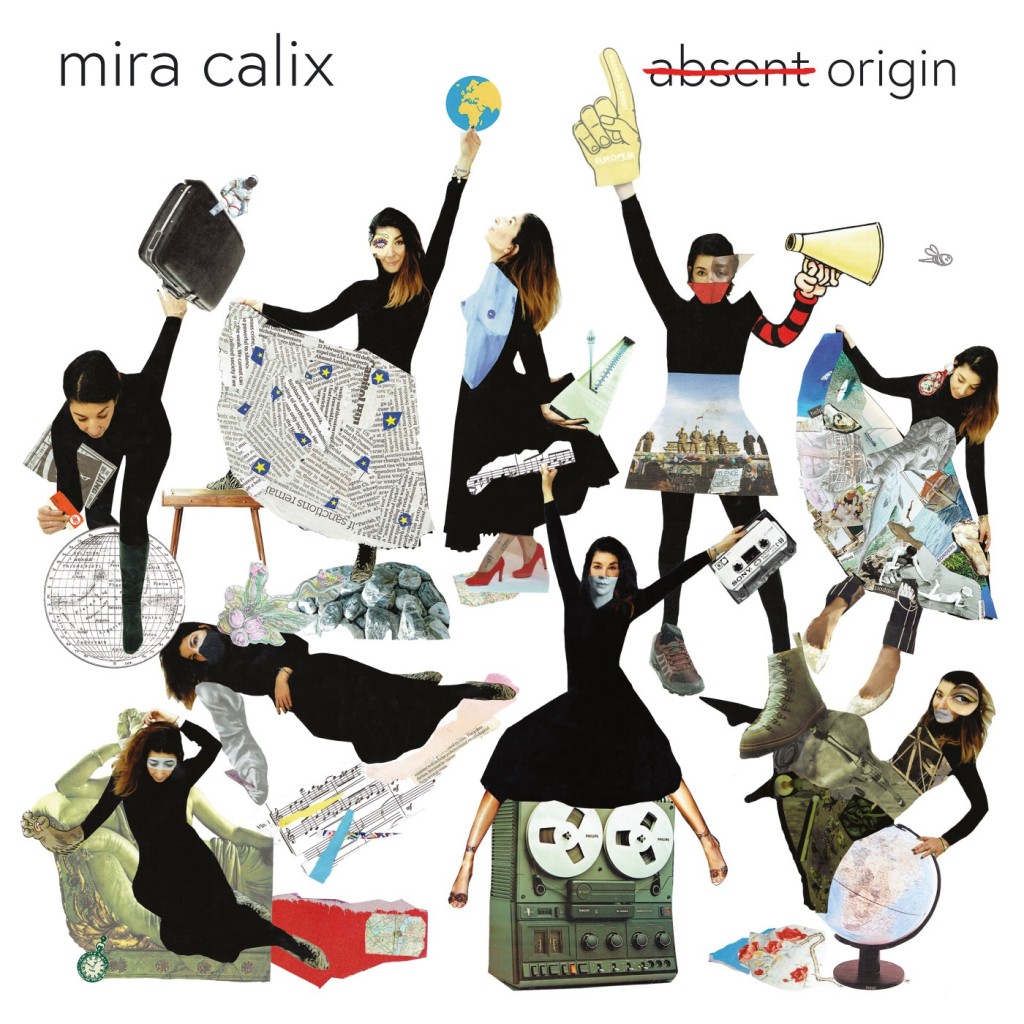
Mira Calix – absent origin (Warp)
Where do even start with this one? I suppose with the fact that Mira Calix deserves far more recognition historically for her releases during Warp’s “IDM ramped up a notch” period in the late 90s and early 00s. If anyone from Warp reads this, please do consider a reissue of 2003’s Skimskitta in time for its 20th anniversary.
On to absent origin, which is just a tremendous amount of album to take in. Thematically linked to visual collage, this is essential headphone listening if only for the depth of stereo space on display. Isolated phonemes, synth sirens, and collapsing drum machines swim around you only to occasionally make space for small intelligible declarations – and that’s just the appropriately titled “Like Jenga”.
absent origin is the kind of album that will easily find an audience with the same kinds of people who would buy a John Cage box set or one of the Burroughs compilations on Sub Rosa – and don’t get me wrong, that’s also me. But if you’re enjoying the current queer IDM sound coming from artists like Arca and Lotic, absent origins deserves your immediate attention.
Monobox – Regenerate (M-Plant)
It’s hard to think of someone who knows what he wants and what he’s doing at this point in techno more than Robert Hood. Of course his first album in nearly 20 years under his Monobox alias doesn’t miss once. What else were you expecting other than a masterclass in hard driving techno?
Lyric – “Not Enough” / “Praise Up” (M-Plant)
With each solo release, it becomes clearer that Lyric Hood plays a very significant role bringing light and spirituality to Floorplan, the project started by her father Robert. Addressing inequality on “Not Enough” and faith on “Praise Up”, Lyric delivered two burning pieces of techno to hit the conscience and the soul. The kind of music that makes you seriously miss dance floors.

Lotic – Water (Houndstooth)
It’s really lovely to see an artist blossom into such a different persona while retaining certain signatures. J’Kerian Morgan continues to merge distorted bass and IDM textures, but her background as an experimental music DJ and R&B influences are both brighter than ever on Water. Harps and synths merge beautifully together as Morgan astounds with a newfound vocal strength. Previously often hushed and edited, here Morgan is a siren pining for love and connection.
Best listened to either first thing in the morning or very late at night under the covers.
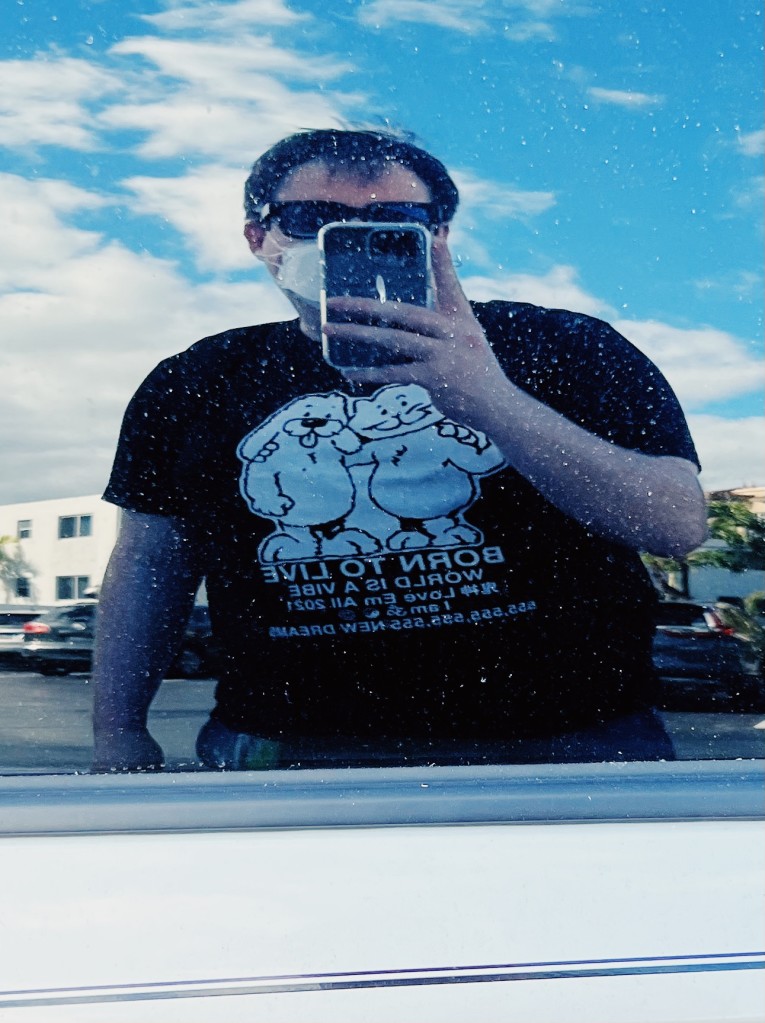
David Abravanel is our music journalist-at-large/in-hiding who makes appearances at semi-regular intervals in these parts.
You should absolutely revisit the 2020 edition: